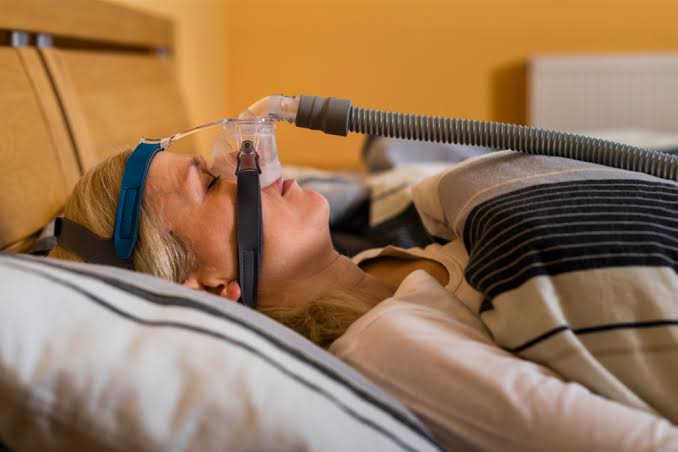Sleep apnea and hormonal imbalance

Sleep apnea is a severe sleep disorder affecting millions of Americans, and it often leads to serious health complications. Many Americans struggle with undiagnosed sleep apnea and its effects on hormone levels. If you suspect that you have sleep apnea that is caused by a hormonal imbalance, you must seek professional help. A visit to an HGH clinic can help determine if low HGH levels are contributing to your symptoms. If so, they can provide treatment options to restore hormonal balance.
How Sleep Apnea Disrupts Hormones
Lower HGH Levels
Increased Body Fat
Lower HGH levels lead to an increase in the amount of fat that rests in the abdominal area. It is most noticeable in the abdominal area, but the rest of the body also receives an extra layer of fat as this hormone decreases.
Reduced Muscle Mass
Lower growth hormone levels also mean a reduction in your muscle mass. One of the symptoms of a growth hormone deficiency is fatigue, and this causes people to forgo exercise. As a result, you lose even more of your muscle mass.
Lower Energy Levels
With adequate levels of HGH, you have higher energy levels. When these levels decrease, you do not have as much growth hormone to stimulate the release of insulin-like growth factor 1. Insulin-like growth factor 1 is the reason that your cells can effectively produce energy.
Slower Recovery from Exercise and Injury
The reason that athletes use HGH is that it causes their muscles to recover faster after workouts. When growth hormone levels are low, they are not enough to allow for faster recovery times, and they are not as adept at healing the body from injuries.
Testosterone Imbalance
Reduced Libido
Male hypogonadism is when the body does not produce adequate levels of testosterone, and it creates an imbalance between hormones. One of the earliest signs of this condition is reduced libido. As time goes by, it can also lead to erectile dysfunction and infertility.
Muscle Loss
Testosterone is the reason that you can build muscle mass. Therefore, when testosterone starts to decline, it is harder to build and maintain muscle mass.
Mood Swings and Irritability
The symptoms of low testosterone include irritability, depression, and fatigue. It is also the reason that some men complain that their quality of life is at a lower level than it was in their younger years.
Fatigue and Lack of Motivation
The medical community lists fatigue and the lack of motivation as symptoms of a testosterone deficiency. Fatigue is common in men with a testosterone deficiency. If the fatigue you are experiencing is particularly unusual for you, it could be that there is a testosterone deficiency and that it is not the result of normal aging.
Cortisol and Stress Hormones
Leads to Weight Gain, Especially Around the Midsection
During stressful times, the body increases the production of cortisol, the stress hormone. When the body releases too much cortisol, it causes weight gain. The fact that cortisol is being produced leads the body to also produce more insulin. When this occurs, insulin and cortisol get together to increase the amount of belly fat. Stressful times also cause people to eat more than usual, and this adds to the weight gain as well.
Increases Anxiety and Depression
Chronic stress causes elevated cortisol levels that remain high for longer than is needed. When the stress response is elevated for long periods, it disturbs all of the body’s other systems. This is the reason that you have a higher risk of anxiety and depression during these times.
Contributes to Insulin Resistance and Higher Blood Sugar Levels
When cortisol levels are high, it causes beta cells to die. Beta cells produce insulin, and when there are fewer of them, your body is not as sensitive to insulin. This endangers the body’s ability to regulate glucose. It also leads to high blood sugar levels, and this leads to chronic inflammation. Chronic inflammation causes several medical conditions, such as dementia, diabetes, obesity, cardiovascular disease, weakened blood vessels, and many other diseases.
Thyroid Dysfunction
Fatigue and Sluggishness
Hyperthyroidism is when the thyroid gland produces too much of the thyroid hormone. When the gland is overactive, it increases your metabolism. This is exhausting for your body and leads to fatigue.
Hypothyroidism is when the thyroid gland does not produce enough of the thyroid hormone. In this case, it can lead to long-term fatigue. It is responsible for several bodily functions, and because hypothyroidism slows down your bodily functions, you begin to notice that you are feeling tired.
Difficulty Losing Weight
Because hypothyroidism slows your metabolism down, it leads to weight gain and the inability to lose weight. For example, you have other hormones that also affect weight loss, but hypothyroidism may be interfering with those hormones so that you cannot lose weight.
Brain Fog and Difficulty Concentrating
The hippocampus uses thyroid hormones for learning and memory. Researchers state that this may be the reason that hypothyroidism leads to difficulty concentrating and memory issues. In one study, as the production of thyroid hormones went down, people stated that they were experiencing the symptoms of brain fog.
When the thyroid gland produces too much of the thyroid hormone, people complain of memory lapses, decreased spatial organization, and poor concentration. If you believe that low HGH is the reason for your sleep apnea, contact us at the HGH Doctor for an appointment. If we discover that your HGH levels are too low, we can offer you hormone replacement therapy. Contact us to




